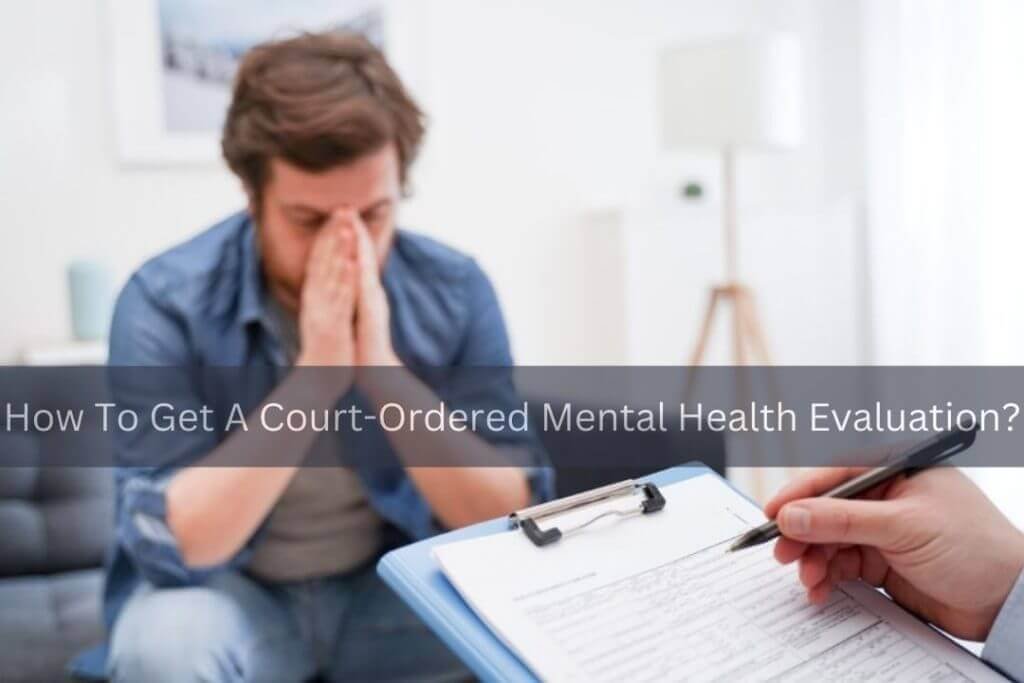How To Get A Court-Ordered Mental Health Evaluation? In some situations, a court-ordered mental health evaluation may be necessary. This evaluation can help determine if an individual is mentally competent to stand trial, if they need mental health treatment, or if they pose a danger to themselves or others. If you or someone you know needs a court-ordered mental health evaluation, it’s important to understand the process and steps involved. In this article, we’ll discuss how to get a court-ordered mental health evaluation.

Step 1: Contact an attorney:
The first step in getting a court-ordered mental health evaluation is to contact an attorney. An attorney can help you navigate the legal system and understand your rights. They can also help you determine if a mental health evaluation is necessary and how to proceed. If you cannot afford an attorney, you may be able to get a court-appointed attorney.
Step 2: File a motion with the court:
After the motion has been filed, a hearing will be scheduled. At the hearing, the judge will consider the motion and determine if a mental health evaluation is necessary. The individual who is the subject of the evaluation may also be present at the hearing. It’s important to note that the judge may not grant the motion for a mental health evaluation if they do not believe it is necessary.
Step 4: Select an evaluator:
Select an evaluator If the judge grants the motion for a mental health evaluation, the next step is to select an evaluator. This is typically a mental health professional who has experience conducting court-ordered evaluations. The evaluator should be impartial and not have any conflicts of interest.
The evaluator will conduct the necessary tests and evaluations to determine the individual’s mental state. This may include interviews with the individual, psychological testing, and a review of medical records. The evaluator will then write a report detailing their findings and conclusions.
Step 5: Attend a hearing to discuss the results:
Once the evaluation is complete, a hearing will be scheduled to discuss the results. The evaluator may be present at the hearing to answer questions and provide additional information. The judge will use the report and any other evidence to make a determination about the individual’s mental health.
If the judge determines that the individual is not mentally competent to stand trial, they may order treatment to restore competency. If the judge determines that the individual is a danger to themselves or others, they may order involuntary hospitalization or other treatment.
Conclusion:
Getting a court-ordered mental health evaluation can be a complex and involved process. It’s important to understand the steps involved and to have the guidance of an experienced attorney. If you believe that a mental health evaluation is necessary, it’s important to act quickly and file a motion with the court. The sooner the evaluation is conducted, the sooner the individual can receive the necessary treatment or support. By following these steps, you can help ensure that the individual receives the care they need and that their legal rights are protected.


